Top 250 Movies Like Annihilation
A list of the best movies similar to Annihilation. If you liked Annihilation then you may also like: Naked Among Wolves, Never Forget, Night and Fog, Nina's House, The Quarrel and many more great movies featured on this list.
Seventy years after the liberation of Auschwitz, we have not finished accounting for the destruction of Europe's Jewish population. One question remains today: not why, but how was the Shoah possible?
Never Forget
Mr. Mermelstein (Leonard Nimoy) and Mrs. Mermelstein (Blythe Danner) a true-life California couple, thrown into the spotlight of judicial history in the 1980s. He is a Hungarian-born Jew, sole-survivor of his family's extermination at Auschwitz, and she is a Southern Baptist from Tennessee. Their four children are good kids, typical Americans, with just enough orneriness to irritate each other, but enough love and class to pull together when it counts. When challenged by a hate group to prove that Jews were actually gassed at Auschwitz, Mel Mermelstein rises to the occasion with the support of his wife and children, in spite of the dangers to himself, his business, and his family. William John Cox (Dabney Coleman) provides legal help (pro bono) as a lawyer, originally a Roman Catholic from Texas.
Night and Fog
Filmmaker Alain Resnais documents the atrocities behind the walls of Hitler's concentration camps.
Nina's House
Starting in 1944 in the wake of the Liberation and continuing into the '60s, 'houses of hope' were established to lend a semblance of continuity to youngsters orpahaned by the war. Nina's Home takes place between September 1944 and January 1946 in an orphanage housed in a chateau outside Paris. At the outset, the country residence is run by Nina who has a core population of French Jewish children whose parents are probably dead. Food is scarce. News of the Concentration Camps hasn't hit yet, but some months later, a contingent of youths arrive form the liberated camps. The children are a disparate, wild, damaged group and conflicts ensue. Nina's challenge is to help them make their first delicate moves toward the future and in the process restore all of them, including herself, to life.
The Quarrel
Montreal 1948. On Rosh Hashanah, Chaim (a Yiddish writer) is forced to think of his religion when he's asked to be the tenth in a minyan. As he sits in the park, he suddenly sees an old friend whom he hasn't seen since they quarrelled when they were yeshiva students together. Hersh, a rabbi, survived Auschwitz and his faith was strengthened by his ordeal, while Chaim escaped the Nazis, but had lost his faith long before. The two walk together, reminisce, and argue passionately about themselves, their actions, their lives, their religion, their old quarrel, and their friendship.
Jew Suss: Rise and Fall
This intricate historical drama tells the story of actor Ferdinand Marian (Tobias Moretti), who is ordered by Nazi propagandist Joseph Goebbels to star in the 1940 anti-Semitic film Jew Suss. Despite his cooperation, Ferdinand's actions have unexpected costs. Ferdinand's Jewish wife, Anna (Martina Gedeck), is sent to a concentration camp, and as World War II intensifies, he rebels against the Nazis, leading to the destruction of his career.
Look to the Sky
A Jewish boy living in Amsterdam at the onset of WWII is taken to a concentration camp with his parents. Based on the memoir of Holocaust survivor Jona Oberski.
Au Revoir les Enfants
Au revoir les enfants tells a heartbreaking story of friendship and devastating loss concerning two boys living in Nazi-occupied France. At a provincial Catholic boarding school, the precocious youths enjoy true camaraderie—until a secret is revealed. Based on events from writer-director Malle’s own childhood, the film is a subtle, precisely observed tale of courage, cowardice, and tragic awakening.
Babiy Yar
Autumn 1941. The Russian army flees Kiev, chaos reigns, soldiers attempt to trade their uniforms for civilian clothes in order to escape unnoticed. The war and pending capture of Kiev by the Germans is the only topic of discussion. Everyone has heard of the horrible things that have happened in other areas, where Jews were brutally and inhumanely murdered. Indecision and despair spread like wildfire among the population. As the German army marches in, fear and horror take over.
Charlotte
In 1939, Charlotte Salomon leaves Berlin to seek refuge at her grandparents' villa in the south of France. A little later, war breaks out, and Charlotte must, besides forgetting all she left behind, deal with her grandmother's depression, and her mother's suicide. To fight despair, Charlotte starts to paint, producing over one thousand images. "Is my life real, or is it theater?" This is the title she gives her body of work, which highlights her former life in Berlin. She finds herself though her art, but in 1943 is deported to Germany and Auschwitz.
Charlotte
The true story of Charlotte Salomon, a young German-Jewish painter who comes of age in Berlin on the eve of the Second World War. Fiercely imaginative and deeply gifted, she dreams of becoming an artist. Her first love applauds her talent, which emboldens her resolve. When anti-Semitic policies inspire violent mobs, she escapes to the safety of the South of France. There she begins to paint again, and finds new love. But her work is interrupted, this time by a family tragedy that reveals an even darker secret. Believing that only an extraordinary act will save her, she embarks on the monumental adventure of painting her life story.
Conspiracy
The historical recreation of the 1942 Wannsee Conference, in which Nazi and SS leaders gathered in a Berlin suburb to discuss the "Final Solution to the Jewish Question". Led by SS-General Reinhard Heydrich, this group of high ranking German officials came to the historic and far reaching decision that the Jews of Europe were to be exterminated in what would come to be known as the Holocaust.
Schindler's List
The true story of how businessman Oskar Schindler saved over a thousand Jewish lives from the Nazis while they worked as slaves in his factory during World War II.
The Grey Zone
A Nazi doctor—along with the Sonderkomando, Jews who are forced to work in the crematoria of Auschwitz against their fellow Jews—find themselves in a moral grey zone.
The Zone of Interest
The commandant of Auschwitz, Rudolf Höss, and his wife Hedwig, strive to build a dream life for their family in a house and garden next to the camp.
Sophie's Choice
Stingo, a young writer, moves to Brooklyn in 1947 to begin work on his first novel. As he becomes friendly with Sophie and her lover Nathan, he learns that she is a Holocaust survivor. Flashbacks reveal her harrowing story, from pre-war prosperity to Auschwitz. In the present, Sophie and Nathan's relationship increasingly unravels as Stingo grows closer to Sophie and Nathan's fragile mental state becomes ever more apparent.
God Is Great and I'm Not
Michèle, 20 years old, feels terrible after having broken up with her boy-friend. She meets Francois, who's a veterinarian and jewish. Michèle decides to convert into Judaism because she has to believe in something, if not in someone.
Facing Windows
Overburdened and stuck in a greying marriage, Giovanna takes to caring for a Jewish Holocaust survivor her husband brings home. As she begins to reflect on her life, she turns to the man who lives across from her.
The Golem: How He Came into the World
Suffering under the tyrannical rule of Rudolf II in 16th-century Prague, a Talmudic rabbi creates a giant warrior to protect the safety of his people. Sculpted of clay and animated by the mysterious secrets of the Cabala, the Golem was a seemingly indestructible juggernaut, performing acts of great heroism, yet equally capable of dreadful violence. When the rabbi's assistant takes control of the Golem and attempts to use him for selfish gain, the lumbering monster runs rampant, abducting the rabbi's daughter and setting fire to the ghetto.
The Song of Names
A man searching for his childhood best friend — a Polish violin prodigy orphaned in the Holocaust — who vanished decades before on the night of his first public performance.
Sunshine
The story of a Jewish family living in Hungary—through three generations—rising from humble beginnings to positions of wealth and power in the crumbling Austro-Hungarian Empire. The patriarch becomes a prominent judge but is torn when his government sanctions anti-Jewish persecutions. His son converts to Christianity to advance his career as a champion fencer and Olympic hero, but is caught up in the Holocaust. Finally, the grandson, after surviving war, revolution, loss and betrayal, realizes that his ultimate allegiance must be to himself and his heritage.
Population: 1
A defense contractor who somehow becomes the sole survivor of a nuclear holocaust. In his solitude, he traces the history of U.S. civilization in the 20th century through musical numbers.
Imaginary Witness: Hollywood and the Holocaust
Daniel Anker’s 90-minute documentary takes on over 60 years of a very complex subject: Hollywood’s complicated, often contradictory relationship with Nazi Germany and the Holocaust. The questions it raises go right the very nature of how film functions in our culture, and while hardly exhaustive, Anker’s film makes for a good, thought provoking starting point.
Into the Arms of Strangers: Stories of the Kindertransport
In the nine months prior to World War II, 10.000 innocent children left behind their families, their homes, their childhood, and took the journey... to Britain to escape the Nazi Holocaust.
The Last Laugh
Feature documentary about humor and the Holocaust, examining whether it is ever acceptable to use humor in connection with a tragedy of that scale, and the implications for other seemingly off-limits topics in a society that prizes free speech.
The Life Ahead
In seaside Italy, a Holocaust survivor with a daycare business takes in a 12-year-old street kid who recently robbed her.
Madame Rosa
Madame Rosa lives in a sixth-floor walkup in the Pigalle; she's a retired prostitute, Jewish and an Auschwitz survivor, a foster mom to children of other prostitutes. Momo is the oldest and her favorite, an Algerian lad whom she raises as a Muslim. He asks about his parents; she answers evasively. As she ages and takes fewer children, Momo must do more for her; as money is tight, he tries to earn pennies on the street with a puppet. He's a beautiful man-child, and Madame Rosa makes him promise never to sell himself or become a pimp. A film editor, Nadine, befriends him, and his father appears as well. Madame Rosa reaches her last days in fear of hospitals, and Momo must act.
Mr. Death: The Rise and Fall of Fred A. Leuchter, Jr.
A portrait of the life and career of the infamous American execution device designer Fred A. Leuchter, Jr. Mr. Leuchter was an engineer who became an expert on execution devices and was later hired by holocaust revisionist historian Ernst Zundel to "prove" that there were no gas chambers at Auschwitz. Leuchter published a controversial report confirming Zundel's position, which ultimately ruined his own career. Most of the footage is of Leuchter, working in and around execution facilities or chipping away at the walls of Auschwitz, but Morris also interviews various historians, associates, and neighbors.
Paper Clips
Whitwell, TN is a small, rural community of less than two thousand people nestled in the mountains of Tennessee. Its citizens are almost exclusively white and Christian. In 1998, the children of Whitwell Middle School took on an inspiring project, launched out of their principal's desire to help her students open their eyes to diversity in the world and the horrors and enormity of the holocaust.
Paragraph 175
During the Nazi regime, there was widespread persecution of homosexual men, which started in 1871 with the Paragraph 175 of the German Penal Code. Thousands were murdered in concentration camps. This powerful and disturbing documentary, narrated by Rupert Everett, presents for the first time the largely untold testimonies of some of those who survived.
Sobibor, October 14, 1943, 4 p.m.
A Claude Lanzmann documentary about one uprising by Jews in a Nazi-run concentration camp taken from his Shoah interviews.
Theresienstadt
Nazi propaganda film about the "Theresienstadt ghetto". The film was supposed to show the world that Jews didn't suffer in concentration camps. Upon completion, most Jews shown in the film (including director Kurt Gerron) were brought to Auschwitz, where they were killed.
Train of Life
In 1941, the inhabitants of a small Jewish village in Central Europe organize a fake deportation train so that they can escape the Nazis and flee to Palestine.
The Giraffe
Lena Katz, who is German, and David Fish, who is American, are Jews who live in New York. When Lena's mother, who arrives from Germany, meets her at a hotel, she finds an almost-dead woman lying on the hotel floor. She accompanies the injured woman to the hospital and meets David, who is the woman's son. After David's mother dies from the injuries, a question remains: was she murdered? The trail leads to Germany. Apparently, Lena's mother has some kind of relationship with David's mother that reaches back into the dark German history of the 1940s
The Last Days
Five Jewish Hungarians, now U.S. citizens, tell their stories: before March, 1944, when Nazis began to exterminate Hungarian Jews, months in concentration camps, and visiting childhood homes more than 50 years later. An historian, a Sonderkommando, a doctor who experimented on Auschwitz prisoners, and US soldiers who were part of the liberation in April, 1945.
2 or 3 Things I Know About Him
What would your family reminiscences about dad sound like if he had been an early supporter of Hitler’s, a leader of the notorious SA and the Third Reich’s minister in charge of Slovakia, including its Final Solution? Executed as a war criminal in 1947, Hanns Ludin left behind a grieving widow and six young children, the youngest of whom became a filmmaker. It's a fascinating, maddening, sometimes even humorous look at what the director calls "a typical German story." (Film Forum)
Winter Journey
Tucson, Arizona, September 1996. At the request of his son Martin, George Goldsmith tells him of his past in Nazi Germany as a member of a family of Jewish musicians and the strange history of the Jüdischer Kulturbund, a Jewish organization sponsored by Reichsminister Joseph Goebbels.
Mr. Kaplan
Jacob Kaplan lives an ordinary life in Uruguay. Like many of his other Jewish friends, Jacob fled Europe for South America because of World War II. But now turning 76, he is grumpy and in need of adventure. An unexpected opportunity to achieve greatness comes in the form of a quiet, elderly German, who Mr Kaplan believes to be a runaway Nazi. Determined to capture this Nazi, as Eichmann was captured before him, Mr Kaplan surprises everyone when he takes up this challenge.
The Long Way Home
The story of the post World War II Jewish refugee situation from liberation to the establishment of the modern state of Israel.
Terrorist on Trial: The United States vs. Salim Ajami
There is no question that the Arab terrorist portrayed by Robert Davi is guilty of killing five US citizens in Barcelona. Even his lawyers have zero respect for the rabidly sociopathic Davi. But Jewish defence attorney Ron Leibman is obsessed with the concept of Due Process, and has vowed that Davi will receive a scrupulously fair trial when the terrorist is extradited to America. The defence mounted by Leibman confounds and aggravates government prosecutor Sam Waterston--but he, like Leibman, remains a man of judiciary integrity.
Shoah
Director Claude Lanzmann spent 11 years on this sprawling documentary about the Holocaust, conducting his own interviews and refusing to use a single frame of archival footage. Dividing Holocaust witnesses into three categories – survivors, bystanders and perpetrators – Lanzmann presents testimonies from survivors of the Chelmno concentration camp, an Auschwitz escapee and witnesses of the Warsaw Ghetto Uprising, as well as a chilling report of gas chambers from an SS officer at Treblinka.
God on Trial
In the Jewish tradition of arguing with God, Jewish prisoners in Auschwitz decide to put God on Trial.
American Matchmaker
Nat Silver has been engaged 7 times already. This time, his 8th, he's really going to get married. But a visitor shows up, Shirley's old boyfriend. With a gun ! He'll kill himself unless he can have Shirley back, and Nat graciously gives in. According to Nat's mother, his Uncle Shya was unlucky at love but lucky as a matchmaker, and Nat is just like Shya. Nat tells his family he's going to Italy. But he remains in New York and sets himself up with a new name and new business, Nat Gold, Advisor in Human Relations...
Kike Like Me
Documentary in which filmmaker Jamie Kastner goes on a personal journey to find out what it means to be Jewish in the modern world. Along the way he meets anti-semitic politician Pat Buchanan, Israeli novelist AB Yehoshua, British anti-Israeli curmudgeon Richard Ingrams and Hasids in Brooklyn; he causes a near-riot in a Parisian suburb simply by asking what people think about Jews; and he meets the 'dominatrix' behind Berlin's largest memorial to dead Jews. (Storyville)
Future World: City of Mass Destruction
Set in a post apocalyptic landscape 28 thousand years into the future, "Future World: City of Mass Destruction" is an amazing vision of the last city on earth. After four atomic holocausts and the second Ice Age, only one city remains on our ravaged planet - a city on the edge of insanity, overrun by mutants and madmen, and largely controlled by the tyrannical Devoz Corporation. This dying metropolis is mired in the throes of a power struggle amongst the city's final three corporate dynasties. The surviving corporation must in the end turn to a tribe of Amazon warrior women it once tried to destroy to save their dying planet. Visionary director Daniel E. Falicki guides you through a world of lesbian warriors, insufferable Grugs, a vicious Spider Queen, and a Blue Genie with loads of "smokable" fun! Are YOU ready to party like it's the year 30,000? Then take a trip to FUTURE WORLD! A cutting edge rotoscoped feature in the style of Ralph Bakshi's "Heavy Metal," "Future World: City of ...
The Exiles
A chronicle of the rescue of oppressed intellectuals and artists from Europe before the outbreak of World War II. It studies the cultural and intellectual impact of this emigre population on American life.
My Father's Secrets
Brussels, Belgium, 1959. Michel and Charly Kichka, two Jewish brothers, enjoy a happy childhood with their parents and their two sisters. Henri, their discreet and usually silent father, does not speak at all about his past, so they imagine that as a young man he was an adventurer, a pirate or a treasure hunter.
Broken Promise
Slovakia, on the eve of the outbreak of World War II. The family of the young Jewish Martin Friedmann gathers to celebrate his bar mitzvah and make a solemn promise that they will all meet again a year later around the same table; but the storms of war and anti-Semitic fanaticism will lead each of them down very different paths.
A Bag of Marbles
Set in Paris 1941, two Jewish boys cling to their lives by doing all sorts of odd jobs, stealing and black-marketeering.
The Jewish Cardinal
The Jewish Cardinal tells the amazing true story of Jean-Marie Lustiger, the son of Polish-Jewish immigrants, who maintained his cultural identity as a Jew even after converting to Catholicism at a young age, and later joining the priesthood. Quickly rising within the ranks of the Church, Lustiger was appointed Archbishop of Paris by Pope John Paul II―and found a new platform to celebrate his dual identity as a Catholic Jew, earning him both friends and enemies from either group. When Carmelite nuns settle down to build a convent within the cursed walls of Auschwitz, Lustiger finds himself a mediator between the two communities―and he may be forced, at last, to choose his side.
Victor Young Perez
Victor Perez was a Jewish boxer who became world flyweight champion in 1931 and 1932, but was transported to Auschwitz concentration camp when Paris fell to the Nazi s in 1943. While there he was forced into slave labour and made to participate in violent boxing matches for the amusement of the Nazi guards. Surviving Auschwitz tells Victors astonishing, harrowing, brutal and incredibly moving true story.
Adam Sandler: Funny Guy
Adam remains a consistent favorite among fans who are comforted that they will always have a good time. Get the inside story on this fascinating actor, comedian, screenwriter, producer, husband, father, and forever FUNNY GUY.
Picasso sans légende
Involved in the Spanish Civil War, threatened by the Nazi occupiers, glorified at the Liberation, starred during the Cold War: is Picasso's magnified aura really in tune with reality? Without denying his genius, Manuelle Blanc examines the heroic figure of the artist in the Resistance, sifting through the reality of historical events and his actions. Drawing on archive footage and the insights of specialists (academics, critics and art historians), her film sheds light on the weaknesses, contradictions and ambiguities of the man who remains, half a century after his death, an undisputed icon of modern art.
German Concentration Camps Factual Survey
On the 29th September 1945, the incomplete rough cut of a brilliant documentary about concentration camps was viewed at the MOI in London. For five months, Sidney Bernstein had led a small team – which included Stewart McAllister, Richard Crossman and Alfred Hitchcock – to complete the film from hours of shocking footage. Unfortunately, this ambitious Allied project to create a feature-length visual report that would damn the Nazi regime and shame the German people into acceptance of Allied occupation had missed its moment. Even in its incomplete form (available since 1984) the film was immensely powerful, generating an awed hush among audiences. But now, complete to six reels, this faithfully restored and definitive version produced by IWM, is being compared with Alain Resnais’ Night and Fog (1955).
Music in Nazi Germany - The maestro and the cellist of Auschwitz
The stories of Jewish cellist Anita Lasker-Wallfisch, who survived Auschwitz, and of star conductor Wilhelm Furtwängler, who worked with the Nazis, provide insight. The film centers around two people who represent musical culture during the Third Reich - albeit in very different ways. Wilhelm Furtwängler was a star conductor; Anita Lasker-Wallfisch, the cellist of the infamous Women’s Orchestra of Auschwitz. Both shared a love for the classical German music.
Kitty: Return to Auschwitz
Kitty, a Jewish survivor from the Holocaust, is taken back to Auschwitz, where she revives her imprisonment and life under the 3rd Reich
The Last Survivors
Documentary compiling the testimonies of the last remaining Holocaust survivors living in Britain, all of whom were children at the time, and following them over the course of a year as they embark upon personal and profound journeys.
Born in Auschwitz
The untold story of a Jewish baby who was born in the death camp before the liberation and survived. An extraordinary journey of the second and third generation, breaking the cycle of trauma to free themselves from Auschwitz - forever.
Confronting Holocaust Denial With David Baddiel
The Holocaust is one of the most documented, witnessed and written about events in history, so why is Holocaust denial back on the political agenda? What has happened in the 75 years since the liberation of the camps to have so skewed the picture? And, if it matters, why does it matter?
Belsen: Our Story
Survivors of the Bergen-Belsen concentration camp eloquently and movingly tell of their experiences of deportation, family destruction, and their own survival, together with the history of its place in the Nazi death camp system and its liberation by the British army in April 1945.
The Jewish-Roman Wars
In the first century, after the death of Herod the Great, Judea goes through a long period of turbulence due to the actions of the corrupt Roman governors and the internal struggles, both religious and political, between Jewish factions, events that soon lead to the uprising of the population and a cruel war that lasts several years and causes thousands of deaths, a catastrophe described in detail by the Romanized Jewish historian Titus Flavius Josephus.
Poland 1939: When German Soldiers Became War Criminals
September 1st, 1939. Nazi Germany invades Poland. The campaign is fast, cruel and ruthless. In these circumstances, how is it that ordinary German soldiers suddenly became vicious killers, terrorizing the local population? Did everyone turn into something worse than wild animals? The true story of the first World War II offensive that marks in the history of infamy the beginning of a carnage and a historical tragedy.
Goering's Catalogue
For more than a decade, Reichsmarschall Hermann Göring, Adolf Hitler's right-hand man during the infamous Third Reich, assembled a collection of thousands of works of art that were meticulously catalogued. Why did he steal entire collections, mainly those belonging to Jewish families, ultimately victims of the Shoah? Was it to satisfy his aesthetic ambitions and his insatiable personal greed or was he acting in the common interest of the Nazi rulers?
How Holocaust came to Television
At the beginning of 1979, after more than 30 years of collective repression, a dramatized and emotional US television miniseries ensured that the German population was suddenly reminded of the terrible Nazi crimes against the Jews. What is now expressed with the hitherto unknown word Holocaust, hits many millions of people in the heart. The unexpected echo and the audience reactions were fierce. Even before the TV broadcast neo-Nazis blasted in vain transmitting towers in Germany to prevent this. From the creation and the shooting over the broadcast to the tremendous reactions, documentary filmmaker Alice Agneskirchner tells the story of this emotional television event, which led to a paradigm shift in the perception of German Nazi crimes.
Pesticides: European Hypocrisy
Why does the European Union allow deadly pesticides banned at home to be exported to developing countries? Brazil, especially, uses large quantities of harmful pesticides imported from Europe with terrible effects on the population’s health.
Richard Hammond Meets Evel Knievel
The documentary is based around the Evel Knievel Days event in Butte, Montana. The presenter, Richard Hammond, spends four days with former motorcycle daredevil Evel Knievel. Knievel, by now 69 years old, had become very ill, requiring an oxygen tank strapped up to him constantly to aid with breathing. 48 hours before the film crew arrived, Knievel had a stroke. At several points during filming, Knievel cuts the interview short and leaves before Hammond has finished asking questions.
The Death Train
In Iasi, Romania, from June 28 to July 6, 1941, nearly 15 000 Jews were murdered in the course of a horrifying pogrom. At the time, the programmed extermination of European Jews had not yet began. After the war, the successive communist governments did all they could to ensure the Iasi pogrom would be forgotten. It was not until November of 2004 that Romania recognized for the first time its direct responsibility in the pogrom. All that remains of this massacre are about a hundred photographs taken as souvenirs by german and romanian soldiers, and a few remaining survivors.
The Smuggler and Her Charges
A captivating and personal detective story that uncovers the truth behind the childhood of Michaël Prazan's father, who escaped from Nazi-occupied France in 1942 thanks to the efforts of a female smuggler with mysterious motivations.
Algeria 1943: A Colony Under Vichy Control
World War II, June 1940. France has fallen and suffers the relentless boot of Nazi Germany. But Algeria, the prized French colony in North Africa, remains part of the territory controlled by the Vichy regime of Marshal Pétain. A strict colonial order is maintained: the French of European origin rule, while local Jews are stripped of French citizenship and discrimination against the mainly Muslim population increases.
The Deaf Holocaust: Deaf People and Nazi Germany
As part of the season of programmes commemorating the 60th anniversary of the Holocaust and the liberation of Auschwitz, Clive Mason visits the killing centre of Hadamar to investigate the development and impact of the Nazi policy of enforced sterilisation and the murder of deaf and disabled people, which took place in Germany between 1933 and 1945. Members of the German deaf community, who are still living with the legacy of this brutal Nazi policy, tell their moving stories for the first time on television. From the UK, in English narration & Sign language.
The Auschwitz Report
This is the true story of Freddy and Walter – two young Slovak Jews, who were deported to Auschwitz in 1942. On 10 April 1944, after meticulous planning, they manage to escape. While the inmates they had left behind courageously stand their ground against the Nazi officers, the two men are driven on by the hope that their evidence could save lives.
Out of the Ashes
The real-life story of Gisella Perl, a Jewish Hungarian doctor imprisoned in the notorious Auschwitz death camp of World War II.
The Guard of Auschwitz
Nazi occupied Poland, during the World War II. Hans, a former brilliant student, has become an SS officer stationed at the Auschwitz-Birkenau concentration camp. When he is commissioned by his superior officer to build an efficient gas chamber, Hans, facing the harsh reality, begins to realize the magnitude of the atrocious acts of which he is being accomplice.
A Rose in Winter
The true story of Edith Stein, a German Jewish philosopher and feminist who converted to Christianity and became a nun, and died in Auschwitz to became Saint and Martyr, the Patron of Europe with the name Saint Theresa Benedicta of the Cross.
The Wannsee Conference
A real time recreation of the 1942 Wannsee Conference, in which leading SS and Nazi Party officals gathered to discuss the "Final Solution to the Jewish Question". Led by SS-General Reinhard Heydrich, the Wannsee Conference was the starting point for the Jewish Holcaust which led to the mass murder of six million people.
The Inspector
At the end of WW2, a compassionate Dutch policeman helps smuggle a Jewish woman into British Palestine.
L'histoire d'Annette Zelman
Paris in 1942. Annette is 20 years old, Jean is barely older, they love each other and the future is bright for them. But the deportation of the Jews of France will change their destiny. Upset at the idea of their only son marrying a Jewish woman, Jean Jausion's parents decide to keep young Annette Zelman away from them... and denounce her to the Gestapo. The machine was launched, but it was too late. Annette was deported to Auschwitz on June 22, 1942.
Delegation
Three young Israeli students take a school trip to Poland to visit the sites where the Nazis carried out the extermination of European Jews during World War II.
Witness Out of Hell
Leah Weiss, a Polish Jew, was first forced into prostitution at Auschwitz. Afterwards, she was victimized in medical experiments. Now, twenty years later, German war crimes prosecutors hope she will be their star witness. But can she stand up to the shame, the publicity, and the reliving of those experiences?
The Birch-Tree Meadow
Myriam, a survivor of the concentration camp at Auschwitz, is a filmmaker and journalist who has spent many years living abroad. She takes part in a memorial event at the town hall in Paris commemorating the liberation of the camp, where she wins a flight to Cracow. At first she refuses to accept the prize, then decides to go.
Remembrance Of Love
Joe Rabin is a Holocaust survivor. After the war he went to America, married someone and had a family. Today, he is on his way to Israel for a reunion of Holocaust survivors. It seems that he has another reason for going. It seems like during the war, he had a girlfriend and they were separated and she was pregnant. He has never found out what happened to her, or their baby, he hopes to find out now.
War in the Highlands
La Guerre Dans le Haut Pays is a period piece set in the winter of 1797-98, during the six days leading up to the fall of Bern and the victory of Napoleon's army, when the Bern government is faced with mixed loyalties from its subjects. The population of the lower valley is divided, but the upper region remains loyal, since they have been given special autonomy and a favorable system of taxation. David, a postman, works between the two regions. His father, who is a hard-line conservative, does not approve of his relationship with Julie, who is from the lower part of the valley. Julie's father, on the other hand, is more open to the new ideas of liberation. As a result of his work, David is exposed to new ideas and becomes a believer in equality and justice.
The General Case
In the young Federal Republic of Germany, which in the late 1950s in politics and justice is still interspersed with only superficially purified Nazi cliques, leads the Hessian Attorney General Fritz Bauer a lonely fight against the coverup of Nazi crimes and the restorative policy of the government Adenauer - he is firmly convinced that only in this way can the young democracy be consolidated. Not only his attitude, but also his temperament make Bauer vulnerable, again and again resistance forms from politics, intelligence services and the judiciary against the lone fighter.
Long Is the Road
"Long is the Road" - The first feature film to represent the Holocaust from a Jewish perspective. Shot on location at Landsberg, the largest DP camp in U.S.-occupied Germany, and mixing neorealist and expressionist styles, the film follows a Polish Jew and his family from pre-war Warsaw through Auschwitz and the DP camps.
War in Russia: The Siege of Leningrad
Relive one of the longest and most destructive sieges in history that led to the systematic starvation and destruction of the human population.
Mortal Remains
A docu-thriller that sets out to uncover the details surrounding the life, brief career, and mysterious death of horror filmmaker Karl Atticus, referred to by some as the forgotten father of the "slasher movie." The film includes interviews with various horror historians and aficionados including Eduardo Sanchez (director of The Blair Witch Project), who posits the question: Why, for 40 years, has the story of Karl Atticus been all but eradicated from the annals of cinema history?
Genocide
The mass murder of Jewish people by the Nazi regime is chronicled, with a warning that anti-Semitism is on the rise and the events of the Holocaust could happen again. The history of European Jewish culture and events before and during the Holocaust are seen in newsreels, photographs, and animated segments. The words of the victims of the era are read, and footage from the liberation os a concentration camp is shown.
If a Tree Falls: A Story of the Earth Liberation Front
Filmmaker Marshall Curry explores the inner workings of the Earth Liberation Front, a revolutionary movement devoted to crippling facilities involved in deforestation, while simultaneously offering a profile of Oregon ELF member Daniel McGowan, who was brought up on terrorism charges for his involvement with the radical group.
The Commandant's Shadow
While Hans Jurgen Höss enjoyed a happy childhood in the family villa at Auschwitz, Jewish prisoner Anita Lasker-Wallfisch was trying to survive the notorious concentration camp. At the heart of this film is the historic and inspiring moment – eight decades later – when the two come face-to-face. This is the first time the descendant of a major war criminal meets a survivor in such a private and intimate setting, Anita’s London living room. Together with their children, Kai Höss and Maya Lasker-Wallfisch, the four protagonists explore their very different hereditary burdens.
Feeding Tomorrow
Food influences every part of our lives, yet our national agricultural system is going terribly wrong. From our emphasis on cattle farming and chemical fertilization to wasteful distribution, there is a direct connection between unhealthy soil and unhealthy people. Feeding Tomorrow poses one of the most important questions of our time: How can we feed the earth’s population of 8 billion people in a just, sustainable, and environmentally responsible way?




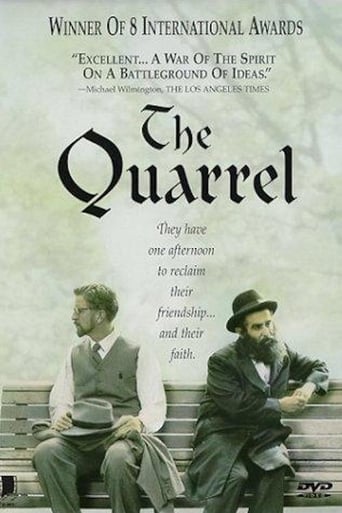






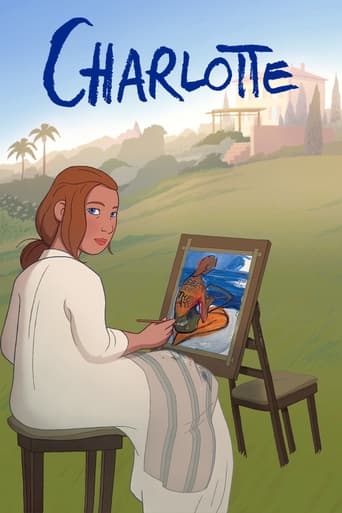
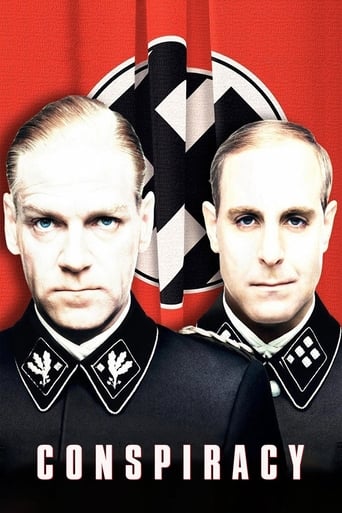
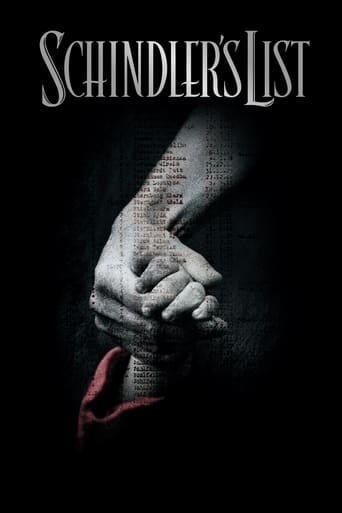
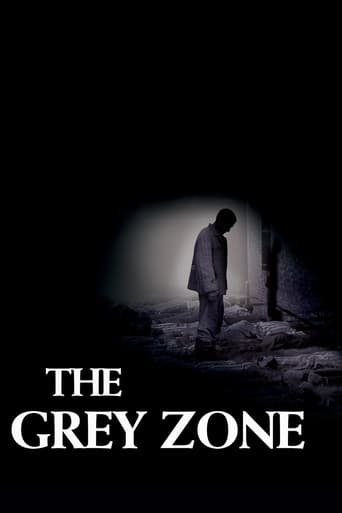
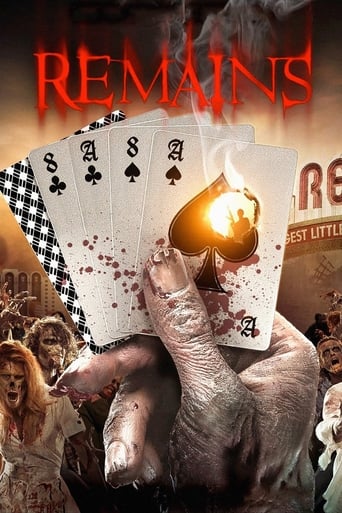
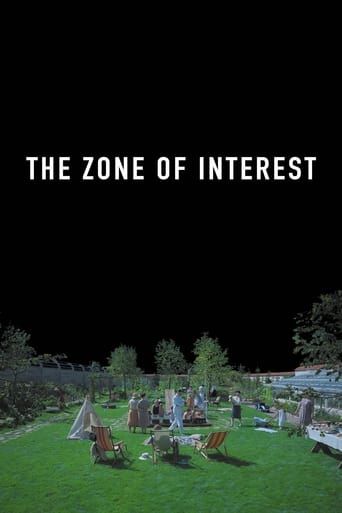
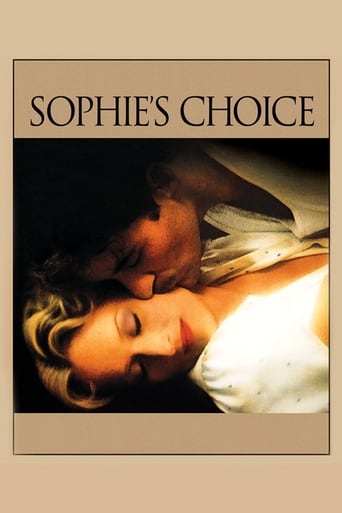



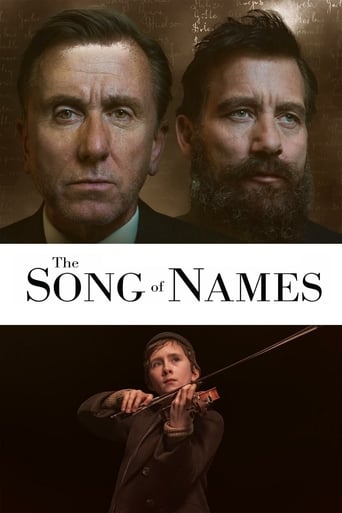
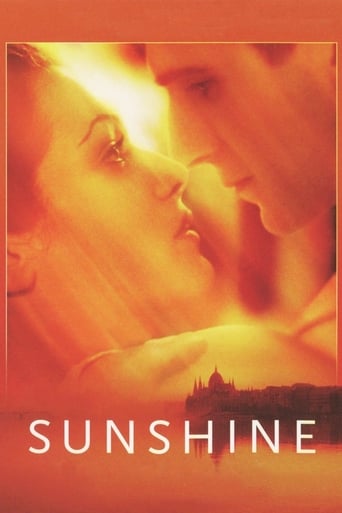




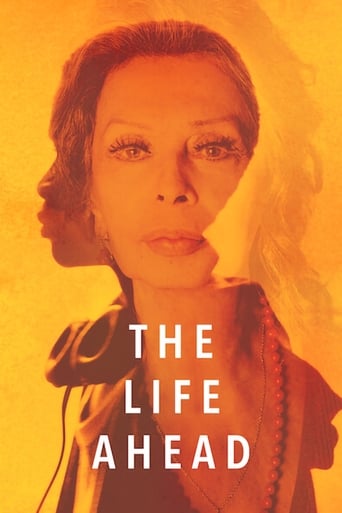
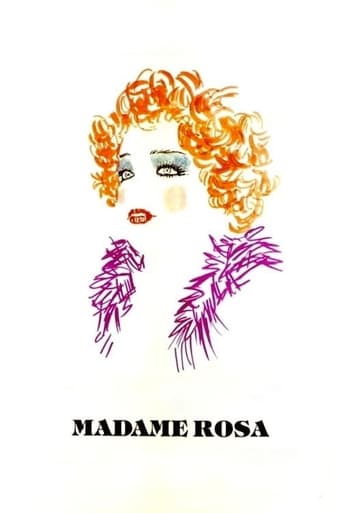










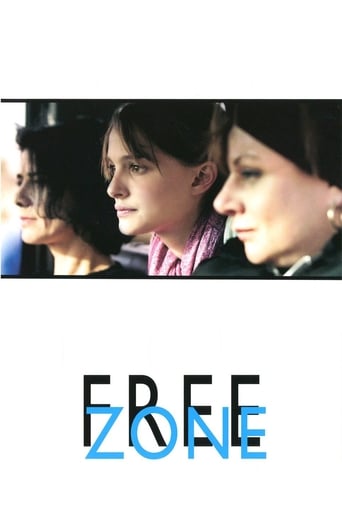

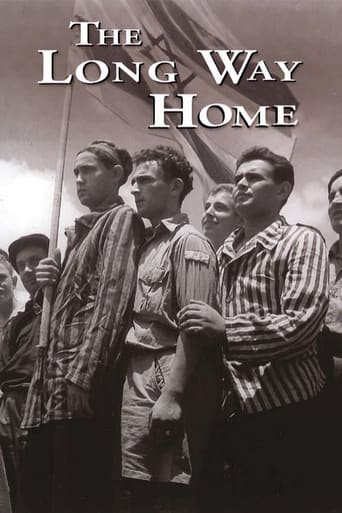
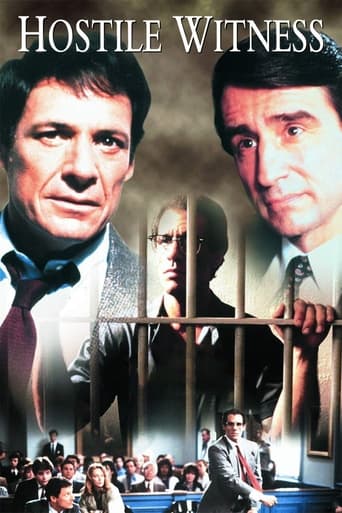

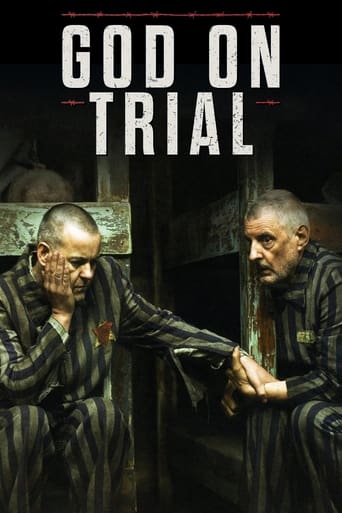







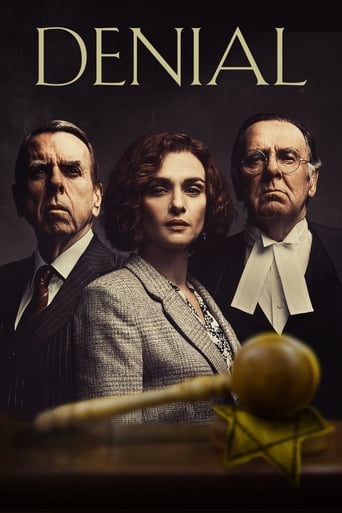



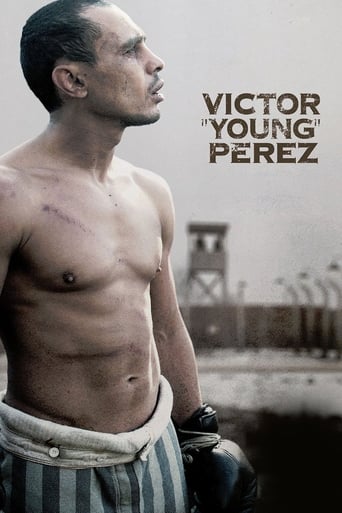










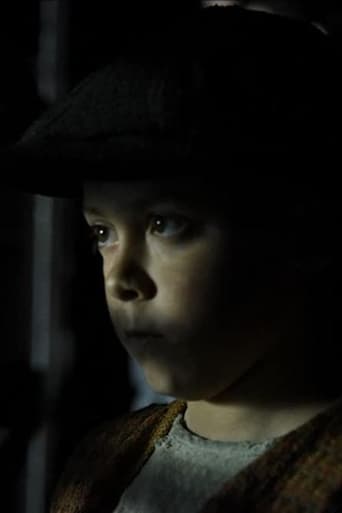











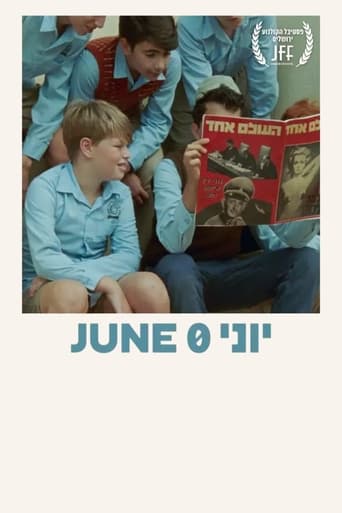

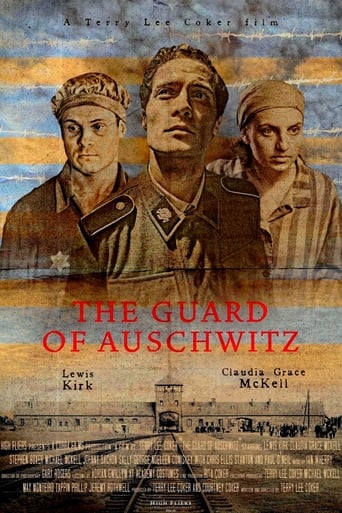














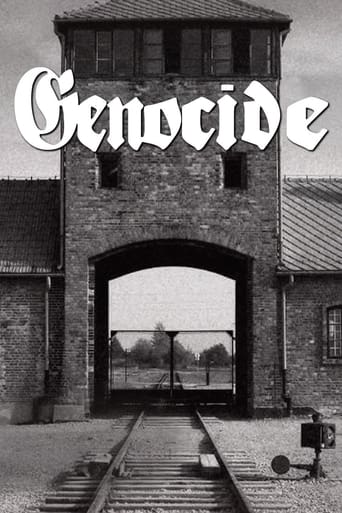
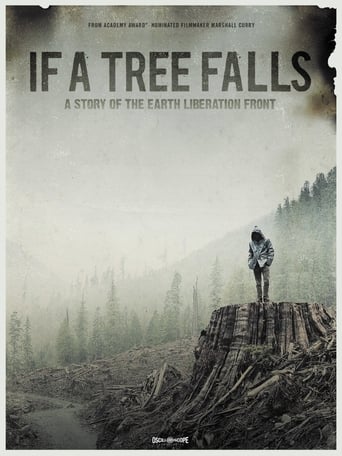
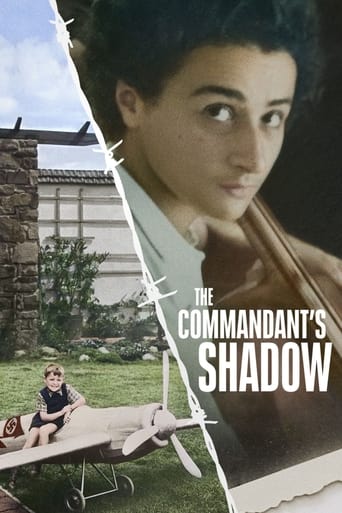

Naked Among Wolves
Taking place at the Concentration camp Buchenwald at the end of March 1945, prisoner Hans Pippig discovers in a carrying case of an incoming prisoner a Jewish child. If reported the three-year-old is sure to die. On the other hand, a violation of the rules of the camp would threaten the long prepared uprising of the concentration camp prisoners against the SS.